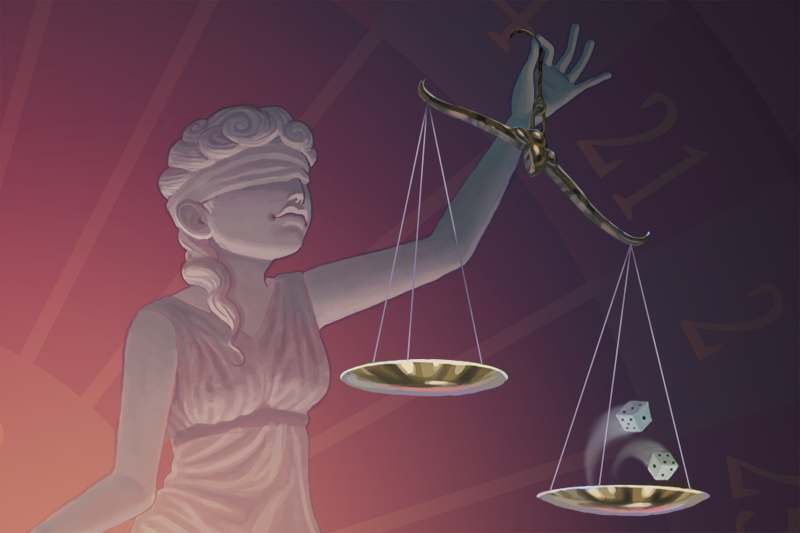Who places blame for reckless acts? Often it’s Lady Luck, not Lady Justice

Illustration: Division of Research
Two men stand on a highway overpass. One man tosses a red brick onto the highway below; the other tosses a green brick.
One brick hits the pavement and harms no one. The other smashes through the roof of a car and kills a passenger.
Should the men receive equal punishment, or should the unlucky one who killed a passenger receive harsher treatment than the lucky one who harmed no one?
In a new study, Assistant Professor Heather Lench and her Department of Psychology research team found that a person who acts immorally or recklessly — but is “lucky” by escaping dire consequences — is judged less harshly than an “unlucky” person, even when each has committed the same act.
The study, “Beliefs in Moral Luck: When and Why Blame Hinges on Luck,” is co-authored by Lench, along with Rachel Smallman and Kathleen Darbor, also of Texas A&M, and Darren Domsky of Texas A&M at Galveston. It will be published in an upcoming edition of the British Journal of Psychology.
#TAMUresearch

